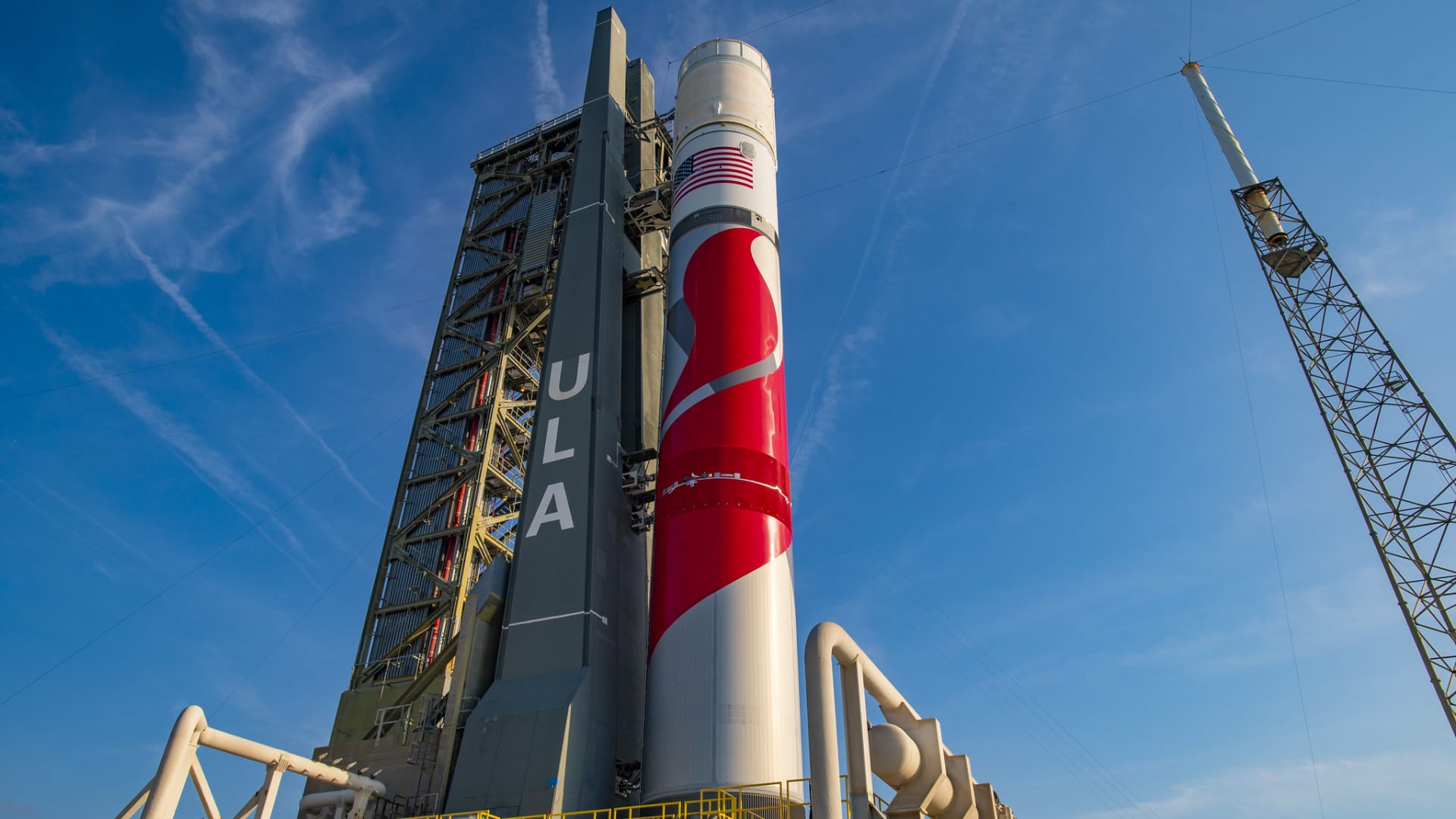United Launch Alliance plans to launch the inaugural flight of its Vulcan rocket on Christmas Eve, CEO Tory Bruno told CNBC’s Morgan Brennan on Tuesday.
Bruno, speaking at the CNBC Technology Executive Council Summit, said the target window for Vulcan’s first launch runs between Dec. 24 and Dec. 26. The rocket will lift off from Cape Canaveral, Florida.
ULA is currently working to build and qualify the upper stage of the rocket, running those tasks “in parallel,” Bruno said, with both expected to “get done in November.”
In the event ULA misses the December window due to shipping delays or bad weather, the company — a joint venture of Boeing and Lockheed Martin — will move back the launch to January.
The Vulcan rocket for the Cert-1 mission stands at SLC-41 during testing in Cape Canaveral, Florida, on May 12, 2023.
United Launch Alliance
Vulcan’s first mission will carry a commercial lunar lander built by Astrobotic and a payload for Celestis. The latter will contain the ashes of people who wanted to be buried in space as part of a memorial service.
Previously, ULA intended the flight to include two demonstration satellites for Amazon’s Project Kuiper, but ULA separately launched those prototypes on a different rocket in early October.
ULA’s path to the first Vulcan launch faced several delays earlier this year, including the explosion of an engine during testing by its supplier Blue Origin, previously reported by CNBC. Following the incident, Bruno told CNBC in a “Manifest Space” podcast interview that the company still planned to fly its heavy-lift rocket by late 2023.
Once Vulcan launches, ULA plans to launch “several times” in 2024, Bruno said, before ramping to a rate of every other week by the second half of 2025. The company added a massive contract to launch Amazon’s Kuiper satellites to its previously government-heavy backlog for Vulcan.
“It does change the nature of our business. It makes it a lot more balanced. Before we were probably about 80% government. And now with our other commercial work in Amazon Kuiper constellation, it’s about 50-50,” Bruno said. “That’s a lot healthier place to be, because when one is out, the other is still fine.”
— CNBC’s Morgan Brennan and Michael Sheetz contributed to this report.
Don’t miss these CNBC PRO stories:

